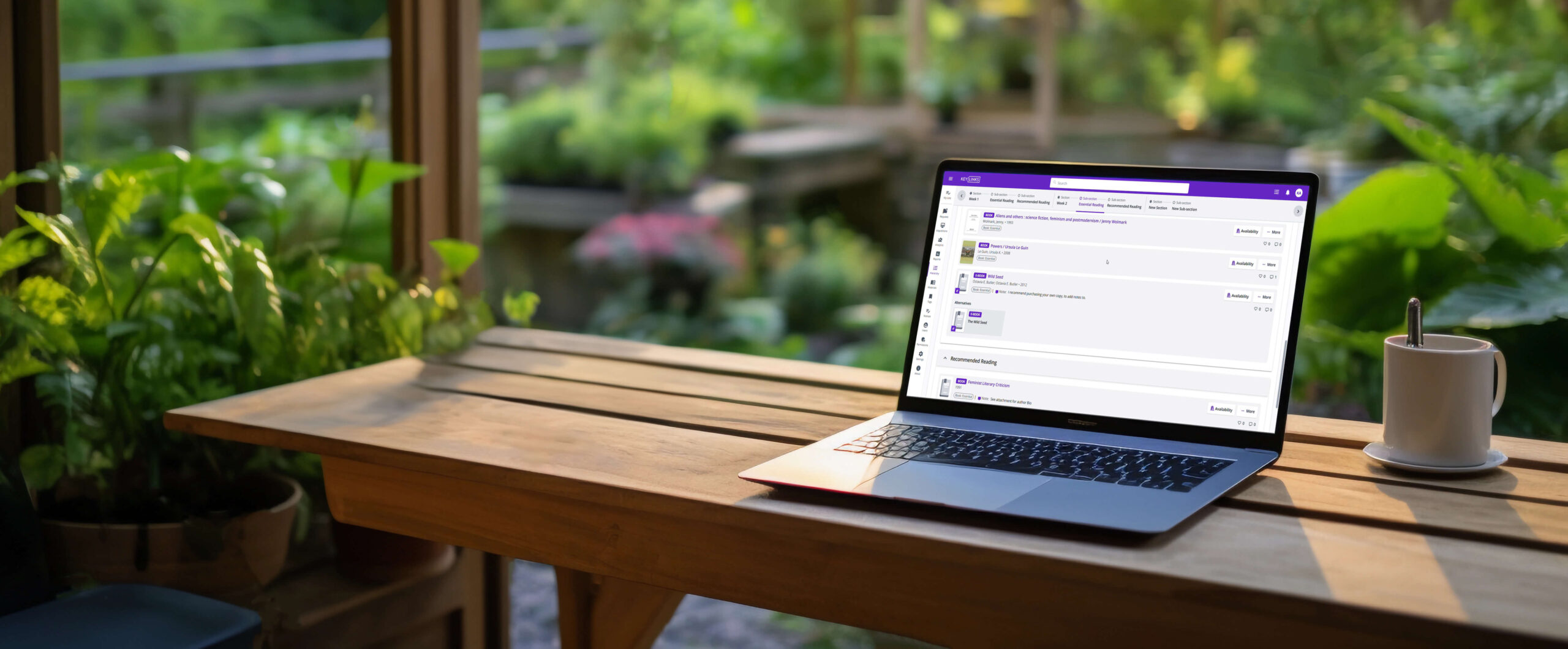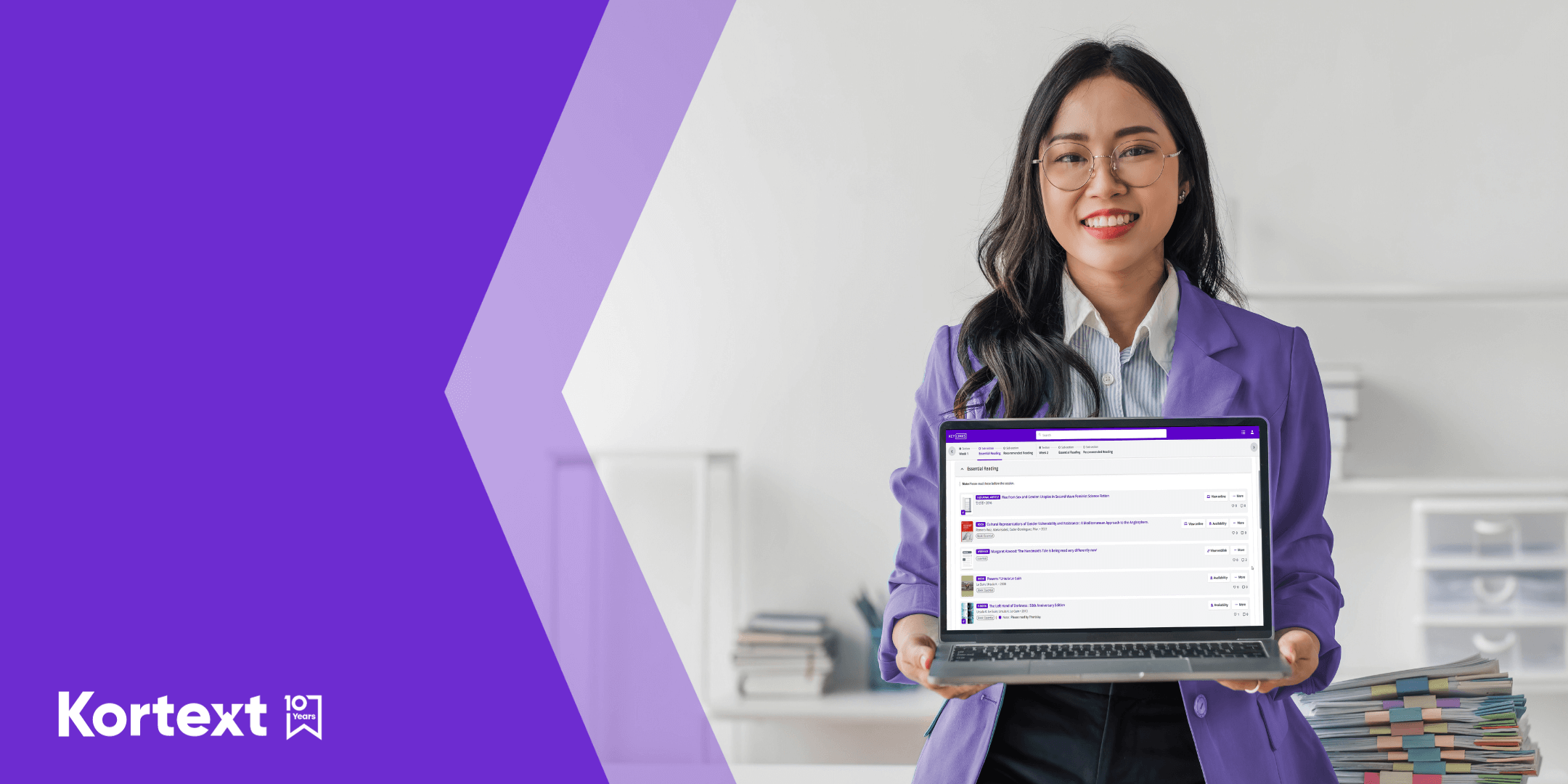We’re here to help with our expert guide on reading lists to get you off to a great start!
What’s a reading list?
Studying at university will be different from how you’ve studied before. You’ll have timetabled sessions (lectures and seminars), but you’ll also be expected to learn independently.
This includes reading about the topics you’re studying. Each unit (or module) on your course will usually have a reading list. That’s just what it sounds like – a list of things for you to read.
In the past, reading lists were provided in paper format, but now the most common option is an online reading list system, like KeyLinks.
Why is a reading list important?
The items on a reading list have been carefully selected by the lecturer teaching the unit.
They will provide you with further information on what’s covered in lectures, help you to prepare for seminars and enable you to tackle assignments.
By doing the selected reading, you’re more likely to get good grades in your assignments.
What will be on a reading list?
It depends on the subject, but often a reading list includes textbooks, journal articles, newspaper articles, films and YouTube videos. Most of this, including textbooks, may be available online.
Why use a textbook? A textbook provides you with an overview of a topic. You might have one or more textbooks recommended as ‘key texts’ on a reading list. These will help you get to grips with the topics covered in your unit.
What’s a journal article? A journal is like an academic magazine, which contains articles written by experts (such as your lecturers). The benefits of a journal article include the ability to take a deeper dive into a subject and giving you more current information than a textbook can.
Why are newspaper articles, films and YouTube videos included? Are they even academic? Yes! It depends on the subject, but for some courses (like Journalism or Media Studies) they’re essential sources. They’re useful for other courses too – providing up-to-the-minute information and a change of pace, helping you to stay interested in what you’re learning.
How do I access a reading list?
Typically you’ll find your units and reading lists on your university’s Virtual Learning Environment (VLE).
Each unit normally has an area on the VLE, which usually contains lecture notes, seminar questions, and the reading list.

Do I have to read everything on the list?
That depends on the reading list, but generally you can be selective about how much you read.
A lecturer will organise a reading list depending on what works best for the subject and how they like to teach. You might find a reading list is organised by topic, or by week, or with the most important reading listed first.
Once you’ve got access to a reading list, look through it carefully. How has it been organised? Are any of the items marked as ‘key’ or ‘essential’? If so, read those as a priority.
Your lecturer might have marked some items as ‘wider’ or ‘further’ reading or viewing. Look at those if you have time, after you’ve tackled the essentials.
In addition, your lecturer might have left notes or instructions in the reading list (for example, ‘in week 1, read chapter 3 of this book’), so look out for those too.
Do I have to buy lots of books?
That depends on your university. You might have been sent a list of books you must buy before starting university, but this isn’t common. If not, don’t rush into buying everything (or indeed anything).
The first step is to check what your university library offers – as well as print books on the shelves, you’re likely to have access to eBooks online. You might even have been supplied with your own copies of eTextbooks through a platform like Kortext Arcturus.
If you do want to buy a book, speak to your lecturer and ask them which book they would recommend students to purchase for the unit.
If you decide to buy books, eTextbooks are a great option. You can access them on your laptop/tablet/phone, so you won’t have to lug heavy print books around. Plus, they’ve got handy features like being able to search the text, highlight, make notes, add bookmarks, and more.
What if I can’t find or access something on my reading list?
Contact your library! The reading list will have been put together by the library, working closely with your lecturer. Most, if not all, of the items on the reading list will be made available through the library.
You can usually ask questions using your library’s virtual chat service (find this on the VLE and/or the library’s website), or you can ask in person at a library help desk. Don’t be afraid to ask – librarians are nice people who want to help you.
It’s likely you’ll get a library induction and/or training sessions at the start of your course. It’s important to attend – university libraries have a huge range of resources and it can be difficult to understand how it all fits together, so finding out early on will give you a head start!
Final thoughts
As a new student, get used to planning your weekly reading. Learn how your university library works. Read as much as you can, but be realistic about how much is achievable. Good luck!
You can find hundreds of thousands of eBooks in the Kortext eBookstore. Plus, students get a 25% discount with StudentBeans!






